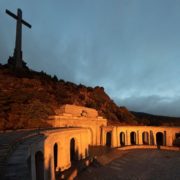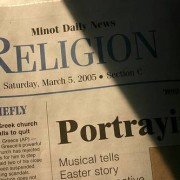The province of Henan (“South of the Yellow River”), China’s cultural heartland, seems to oppose the next historic normalization of ties between the Holy See and Beijing’s government. Recent accounts say children were forbidden from attending Christian masses, and Catholic priests refused to register with the local authorities for fear of religious meddling.
With developments like these, it looks like an open and shut case: the Holy See can’t and shouldn’t talk with Beijing.
Yet as in a good detective story, there is more than meets the eye. The reality is that both the Chinese government and the Holy See are trying to wade through uncharted territory.
Consider the children kept from mass first. Despite what happened in some churches, this is not a national policy; otherwise it would have been applied all over the country not just in Henan. Yet, there is a real problem here.
The issue comes from the restive region of Xinjiang, with a serious problem of Muslim extremism. The Chinese government for decades was oblivious to radical proselytization there. Since the early 1990s, Muslim extremism started to seep in via young students coming back after periods of studies abroad.
In the past couple of years, Beijing began a massive crackdown. When it realized that even local Muslim schools were indoctrinating kids, the government then closed those schools. Moreover the government didn’t want to make all Muslims, most of whom are law-abiding citizens, feel they had been singled out, so then it issued a carpet warning against all religious education for children under 18. This in theory also covered Christian schools. In practice, in many places Christian education for children is tolerated.
Does mass attendance count as religious schooling? Are Christian camp schools included?
The general regulations are vague, but some local officials, fearful of being found lacking, may wish to over-interpret them.
These are very clumsy and coarse measures of an controlling government trying to come to grips with the scourge of Muslim extremists. It may backfire in Xinjiang, but it is not totally unreasonable.
Then there are the priests. For decades, since the Vatican and Beijing broke ties in the early 1950s, some priests and bishops have been underground and others accepted or were forced to join the Communist-backed Catholic Patriotic Association. Rome thus declared there were two churches in China: one underground and loyal to the Holy See and another official and loyal to the party.
Since the 1980s, things have improved, and after Pope Benedict’s 2007 letter to the Chinese, Rome announced it recognized only one Church, although the two communities, people originally underground or official, are often still bitterly split.
Here there is not just an issue of faith, but also of money. According to Chinese law, the bishop, once officially recognized, is also the legal representative of the assets of the diocese. Therefore the government is reluctant to cede those assets to someone in open contrast with the party.
On the other hand, millions are flowing in to support of the underground clergy. It is often unclear where this money goes or how it is spent.
In the case of normalization of ties, both Rome and Beijing will want this money to be accounted for.
Moreover, some priests may be suspicious of the Chinese government wanting to interfere in the Church issues, but in many Western liberal countries, priests are registered with a local authority. Within the Catholic Church, control over the clergy is strict, as priests have to obey their bishops and can’t leave the diocese without permission.
Until a decade ago, things were very loose. Since the Pope’s letter things are clearer, but many aspects are still uncertain. It may be understandable then that some priests are wary of the Patriotic Association, but mustn’t they register somewhere? And certainly they ought to account for how they spend the money they receive.
Here, it all becomes very tricky. There may be cases of persecution, but also instances of swindlers who smear the holy vows for their own gain. Or there may even be people who pretend to be priests despite not being ordained.
In all of this, there is no way Rome can work to bring the Chinese Church together without an open presence in China and thus without some form of collaboration with Beijing.
This is not ideal, but short of this, the Church and anybody else would need to wait for the fall of communism in China. But even this is not a sure bet. It may take a long time to happen, if it will happen at all, and we are not sure whether the next rulers will be better disposed to the Church.
Therefore there is no real alternative. In fact, an official presence of the Holy See in Beijing will enable Rome to address all concerns more directly and clearly with the central government.
Beijing is not an ideal government to deal with religious issues, but neither are many other countries, and the history of the Church is made of frictions and clashes with civil authorities.
Yet there are also reasons to be hopeful. The Chinese government for the first time in its history allowed a foreign spiritual entity, the Vatican, to have a role in China, in this case with regard to the Catholics. It is a historic breakthrough that might help to find a way forward in addressing the many problems of Chinese religious life.





